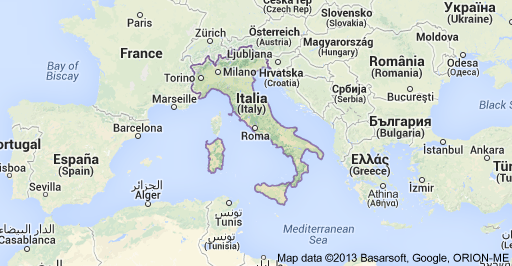This week I have an awesome guest blogger, a massive expat organization, InterNations. Yes, It’s happened, I’m getting fancy enough to have contributing writers and people wanting to advertise on my blog (What?! Fuck Yes!) The world is drunk, my friends. Here is a great article from InterNations, THE expat organization in Europe. If you’re moving here or you want to, I highly recommend signing up on their website. When you finally start to go crazy from living abroad (it happens to the best of us) they’ll provide helpful info, and other insane expats (like me) that can make the shitty moments a little less shitty and a lot more awesome.
Preparing for Your Move to Italy by InterNations
Have you been thinking of making the move to Italy? What do you need to know before you get on that plane? If possible, try to visit Italy as a tourist before moving there and gain a better understanding of life in Italy. You can experience the character of different cities, and maybe even find a job. Italians often prefer to do things face to face, which can make job-hunting difficult from overseas.
The next step is to decide where you want to live in Italy. Most expats will probably make this choice based on the job they find. The biggest expat hotspots in Italy are Rome, Milan and Florence. As Italy’s economy is much stronger in the north compared to the poorer south, you will most likely be relocating here. Not all expats live in Italy’s big cities, however. Some prefer life in the countryside, which opens up options like opening your own B&B.
Once you have found a job and decided where to live, you need to apply for a visa. EU citizens, as well as nationals of Norway, Iceland, Liechtenstein, San Marino, Switzerland and the Vatican City, don’t need a visa to enter the country or live in Italy. Citizens from many other countries don’t need a visa to enter Italy for tourist purposes, but do if they are planning on taking up employment there. In this case, you will need to apply for a long-stay or “national” visa in person at your nearest consulate or embassy before relocating to Italy.
If possible, you should try to figure out your accommodation before arriving in Italy. A high proportion of Italians rent rather than buy, so especially if your expat assignment will only last a couple of years, this is probably the best option for you as well. Keep in mind that the rent in Rome and Milan ranks among the highest in Europe.
Another option is to live in a more rural town outside of the city. Whether or not this is a feasible option will depend largely on where you will be working in Italy and how long your commute would be. Public transportation in Italy is fairly good, and as gas prices are high and driving is chaotic, this may be a better choice than commuting to work by car.
Another big part of getting ready for the international life is learning the language. Italians are very proud of their country and language, and will appreciate any effort you make to speak their language. In addition, not speaking Italian will limit your job opportunities in Italy.
If you’re moving to Italy with kids, you should decide which school you want to send them to. Especially if your children do not speak Italian, it is probably best to send them to an international school. There are many such schools catering to expat children in Rome and Milan, as well as other cities. These schools are usually quite expensive, though, so unless your employer is helping with the costs, you may need to shop around a bit. Many of the international schools offer an International Baccalaureate diploma, which will make it easier for your children to attend a university in another country after graduation.
InterNations is the largest expatriate network worldwide. It was created to help members meet other high-profile expatriates from around the world living in their city and connect with them, both online and offline through events and activities. InterNations was founded in 2007 and now has over 900,000 members in more than 360 Local Communities around the world.

